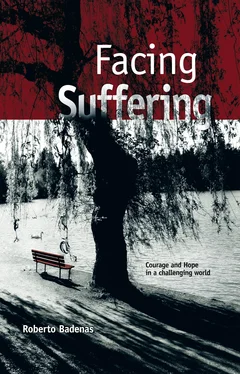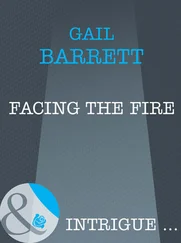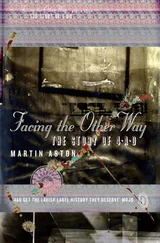Moreover, as demonstrated by Dr. Sylvie Galland, there are many patients who repeat models of painful relationships that they experienced in childhood, which would often be inevitable. For example, the child of an alcoholic tends, more easily than someone else, to take on a painful role similar to the one her mother suffered because of her father’s problems, subconsciously predisposing her to put up with the behavior of a husband…preferably alcoholic! “Perhaps our competitive society has something to do with this. Honors and gratification belong only to those who succeed. But affection, compassion and general favor naturally go to those who suffer. As it is much easier to fail in life than to succeed and to be unhappy than to be happy, the tendency for some is to prefer the easy way.”19
To make matters worse, there are conditions that, for some patients, have a captivating, almost heroic aspect, whose intensity they would never find in the routine of their mediocre lives. An emergency physician friend told me about a homeless man who “had accidents” on a regular basis, to the point where the medical team believed that he did it on purpose, because he missed the excellent care that he received in the hospital each time that he was admitted for his recovery period. Obviously, this is an extreme case, but even to lesser degrees the nostalgia of suffering is not unusual. Some patients confine themselves to their problems as if they did not wish to leave a jail cell to which they had grown accustomed.
These kinds of patients have, in a way, resolved their situation in life. Regaining their health would mean rethinking work, personal, or family issues that they don’t have the courage to face. Their healing—or that of a disabled child, etc.—would obligate them to look for work, or allow their spouse to finally file for a divorce that the spouse does not dare file under the present circumstances. Nothing can cure an illness that the patient benefits from….
In these cases that are close to pathology, in order to begin to regain freedom, the patient would have to get to the point of being willing to give up certain present “benefits” and recognize that they are prolonging in some way a situation that they could overcome. The patient would have to ask themself seriously what would happen if the problems they suffered suddenly disappeared: How would I deal with this new situation? How would my loved ones react? Etc. But to reach that point of ideal clarity and liberating awareness, something more than maturity and intelligence is needed. Human nature is very complex. Taking on the responsibilities of one’s autonomy is never easy and even less so for the patient. In general, people who get stuck in these types of problems need a lot of understanding and professional help to overcome them.
1. The World Health Organization (WHO), in its 1946 Constitution, defines health as “a state of complete physical, mental and social well-being and not merely the absence of disease or infirmity”.
2. See http://www.iasp-pain.org (updated 22 May 2012).
3. See for example, K. J. S. Anand, D. Craig and D. Kenneth, “New perspectives on the definition of pain”. in Pain, Vol 67 (1), Sep 1996, 3-6. Cf. Jan Frans van Dijkhuizen, Pain and Compassion in Early Modern English Literature and Culture (Boydell & Brewer Publishers). 2012.
4. Phillip Moffit, Dancing with Life: Finding Meaning and Joy in the Face of Suffering, New York: Rodale, 2008, p. 86, 91.
5. Cicely Saunders began a revolutionary movement in 1967 in favor of care for the dying, in St. Christopher’s Hospice, located South London, England. Today the movement has transformed the treatment of the terminally ill in hundreds of hospitals around the world, based on the principle of integral care, meeting the patient’s physical, social, emotional, and spiritual needs. Their motto is: “You matter because you are you. You matter to the last moment of your life.” (See Cicely Saunders, “The Care of the Patient and His Family,” in Documentation in Medical Ethics, n° 5 (London Medical Group, 1975).
6. David B. Morris, The Culture of Pain. Berkeley: University of California Press, 1991. Cf. by the same author, Illness and Culture in the Postmodern Age, Berkeley: University of California Press, 1998.
7. Cf. W. J. Roberts, “A hypothesis on the physiological basis for pain”, Pain, nº 24 (1986), pp. 297-311.
8. See Stanley Hauerwas, God, Medicine and Suffering, Grand Rapids: Eerdmans, 1990.
9. Janice M. Morse and Barbara Carter, “The Essence of Enduring and Expression of Suffering: The Reformulation of Self,” in RTNP vol. 10/1 (1998), pp. 43-60. See further Joseph A. Amato, Victims and Values: A History and a Theory of Suffering, New York: Praeger, 1990.
10. T. S. Eliot, “The Burial of the Dead”, in The Waste Land, I (1922).
11. “Pain is personal, more private than thought (you can share thought but not your pain), and so not one of the billions in the world’s cauldron of disease and death ever suffered more than what each one, individually, could.” Clifford Goldstein, Life Without Limits, Hagerstown: Review & Herald, 2007, pp. 106-107.
12. The International Association for the Study of Pain (IASP) defines the pain tolerance level as the maximum intensity of a pain-producing stimulus that a subject is willing to accept in a given situation. “As with pain threshold, the pain tolerance level is the subjective experience of the individual. The stimuli which are normally measured in relation to its production are the pain tolerance level stimuli and not the level itself ” (H. Meskey, “Pain terms: A list with definitions and notes on usage recommended by the IASP subcommittee on taxonomy”, Pain 1979; 6:249-252).
13. Quote attributed to Herbert George Wells (better known as H.G. Wells, 1866-1946), author of The War of the Worlds.
14. Lawrence W. Wilson, Why Me? Straight Talk about Suffering, Kansas City: Beacon Hill Press, 2005, p. 19.
15. Viktor E. Frankl, Man’s Search for Meaning, New York: Washington Square Press, 1963, p. 166.
16. Doug Manning, Don’t Take My Grief Away, San Francisco: Harper, 1979.
17. Unless what he wants is to pull out the tooth as soon as possible to get a reward from his family members! (Cf. Sylvie Galland and Jacques Salomé, If Only I’d Listen to Myself! Resolving the Conflicts that Sabotage our Lives, Element Books, 1997).
18. To say nothing of the “sick tyrant,” who doesn’t ask for anything, but never ceases to brag about it!
19. S. Galland, “L’attachement à la souffrance”, ” [Attachment to suffering], Optima, nº 217, February 1992, pp. 27-28.
2
Expressing Our Pain
“Give sorrow words.”
Shakespeare1
–I can’t find the words to express the sorrow I feel…
Many of the sympathy cards that we send or receive begin with words like these. Whether it is the unexpected loss of an unborn child or any other misfortune, even if it was anticipated, it seems like we are left speechless when confronted with pain. It is not easy to express what we feel when we find out that a friend has been diagnosed with cancer, or when a senseless accident leaves a young neighbor maimed, or when an acquaintance has been the victim of an assault…. An inner need compels us to express our feelings of sorrow, so difficult to shape out of a mixture of emotions, confused with feelings of anger or helplessness.
If enduring pain is difficult, it seems even more difficult to bear it silently. It seems that we have a basic need to express it, although we don’t know how. Upon arrival into this world, the first thing a newborn does is cry in protest, from separation, from fear, perhaps. He who suffers, no matter his age or cultural situation, usually speaks up, whether by complaining or crying about his pain.
Читать дальше












